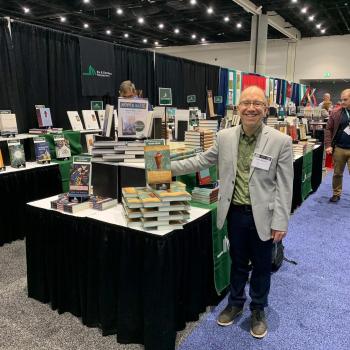It is a fantastic time to be working in the field of Mandaean studies, whether as a scholar of religion, as a linguist working on Mandaic, or in any other capacity. I can’t think of a time ever before in the past when publications related to the study of the religion, history, texts, traditions, rituals, language, contemporary refugee plight, or anything else to do with the Mandaeans has been given such regular attention by academics. I’m excited, of course, at the prospect of the two-volume Mandaean Book of John critical edition, translation, and commentary being released by DeGruyter.
On Academia.edu one can find a range of shared scholarly works related to the Mandaeans. Matthew Morgenstern shared “A New Mandaic Dictionary: Challenges, Accomplishments, and Prospects” as well as an essay co-authored with Hezy Mutzafi on a source of neo-Mandaic linguistic information in the Drower Collection, “Sheikh Nejm’s Mandaic Glossary DC 4.” Adiel Schremer shared a book chapter in modern Hebrew which has the English title, “Parvanka: The Mandaean Context of an Anti-Heretical Polemic in the Babylonian Talmud.” And Mehrdad Arabestani shared his article “Landscape and Constructs in the Mandaean Culture: Immediacy and Temporality.” These are just some of the more recent uploads by these scholars – there is more from them (and me) about Mandaic and the Mandaeans to be found online, whether on Academia.edu or institutional repositories.
Arabestani has also recorded a video, as part of a project at the University of Exeter, “The Worlds of Mandaean Priests”:
https://www.youtube.com/watch?v=okvIqsLL0gg
That project has made a number of very interesting videos available online, including a Mandaean baptism that was performed at the 1999 ARAM conference on the Mandaeans:
The Financial News reported that the Mandaic (Sabian) script has been classified as an important cultural heritage in Iran.
I’ve begun work on a project on the historical John the Baptist, which will connect my work on the Mandaeans with my research on ancient Judaism and early Christianity. I will share more about that in the near future, I’m sure, since I have been finding a lot of things (not only or even primarily in Mandaean texts) which I think elucidate the aims of John the Baptist, Jesus, and the relevance of Mandaean sources and rituals to understanding them.
I also happened across a couple of bits of imagery in non-Mandaean texts that struck me as distant enough that they might not be worth exploring further, but intriguing enough that they might be worth at least mentioning. One is the personification of Truth in the Odes of Solomon 38. The Syriac does not use kushta as its key term, but the personification of Truth still seems reminiscent of Mandaeism. I’m not sure that there is any likelihood of a direct connection, but anyone who has read Mandaean texts about Truth will still find the parallels striking. The other distant connection came to my attention via Majella Franzman’s article “Mariam, the Net-Caster and Shepherd.” You can probably already see where my thoughts went if you are familiar with the Mandaean Book of John. Although the Mariam in the Manichaean source that is the focus of Franzman’s article is very explicitly Mary Magdalene, the fishing and shepherding imagery nonetheless made me think of Miriai in the Book of John, since it is found there in close proximity to the Soul Fisher section, and the Book of John also explores the image of the Good Shepherd. The Manichaean Psalms of Thomas show knowledge of Mandaeism, and so a connection is not impossible.















